Our undergraduate students did a fantastic job presenting at the UW Undergraduate Research Symposium!
[envira-gallery id=”563″]
Click here for more information about joining the HaRRT center as a 499 student.
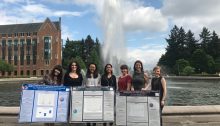
Our undergraduate students did a fantastic job presenting at the UW Undergraduate Research Symposium!
[envira-gallery id=”563″]
Click here for more information about joining the HaRRT center as a 499 student.
The Harm Reduction Research and Treatment Center at the University of Washington-Harborview Medical Center, in partnership with the DESC, Sanctuary Art Center and Efflux Creations, is proud to present the LEAP Artist Collective’s SUMMERTIME art show. SUMMERTIME will be on exhibit between June 7-June 29 at the CMD+P gallery & retail space (http://cmdprint.com) in Pioneer Square, with the First Thursday in June Art Walk kicking off opening night!
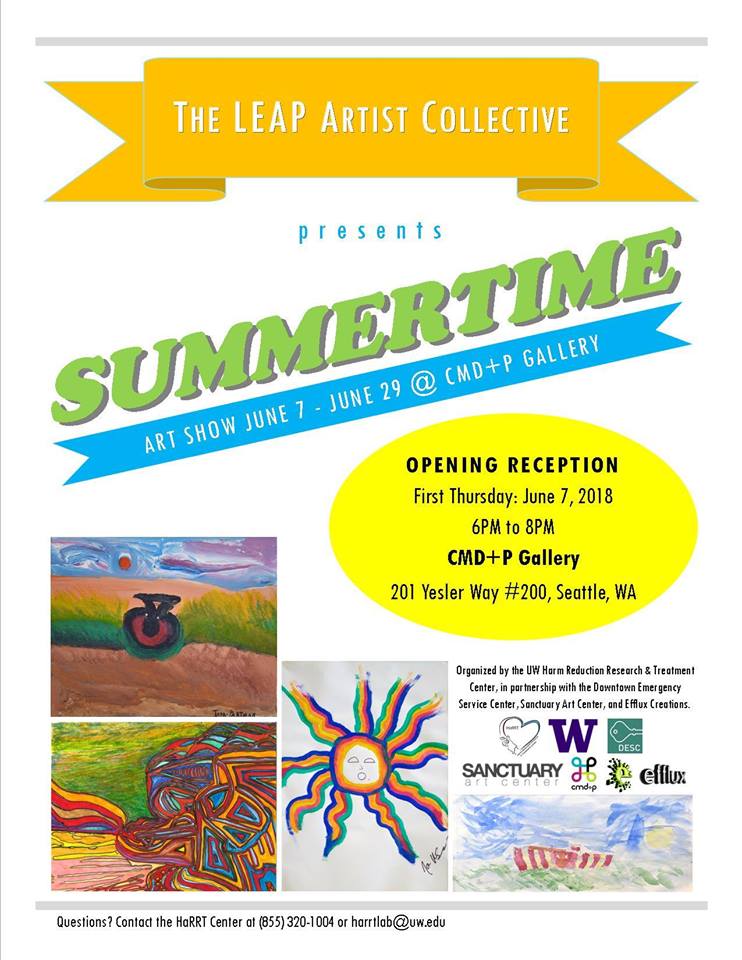
Please join us for an opening night reception on Thursday, June 7th from 6-8pm. Entry to the space is FREE, and hors d’oeuvres with light refreshments will be provided. We will also have live music by musicians from the LEAP Artist Collective! Both original pieces and 8”x10” prints will be available for purchase, as well as t-shirts that have been designed by the artists and screen printed by Efflux Creations. All proceeds from art sales will go directly back to the artist, with a small percentage going towards supporting future programming!
This is a great way to support local artists, programs, and organizations that aim to promote social equity for individuals with lived experience of homelessness.
We hope you will join us on June 7th for a night of amazing art, live music, light refreshments, and great company!
Be sure to catch our undergraduate research assistants presenting at UW Undergraduate Research Program’s 21st Annual Undergraduate Research Symposium this Friday, May 18th from 11:00am-12:30pm and 2:30pm-4:00pm in Mary Gates Hall.
They will present findings on administrative data from the HaRT-A project.
More info about the Undergraduate Research Symposium: https://www.facebook.com/events/148525655711911/
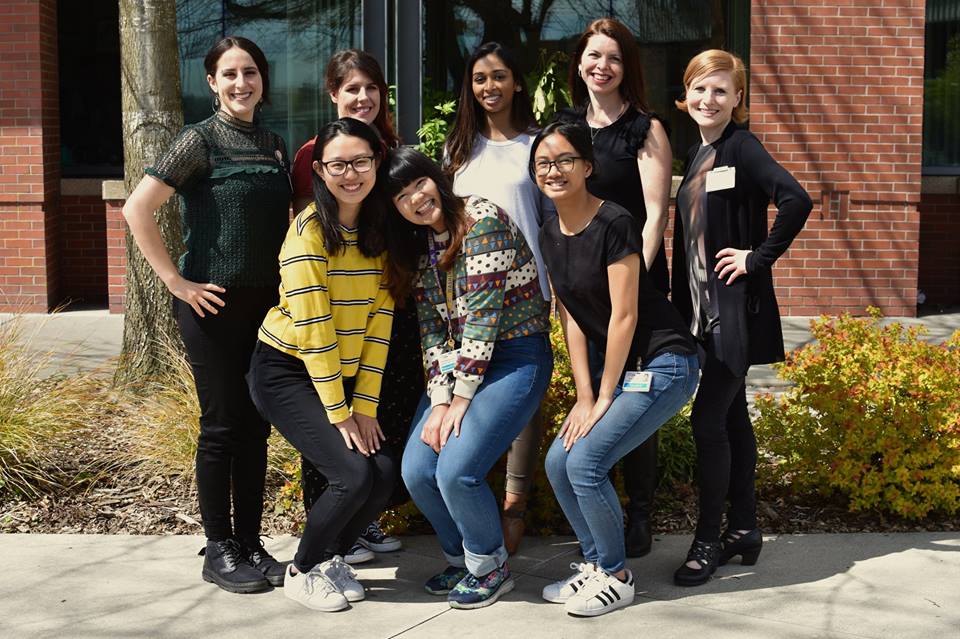
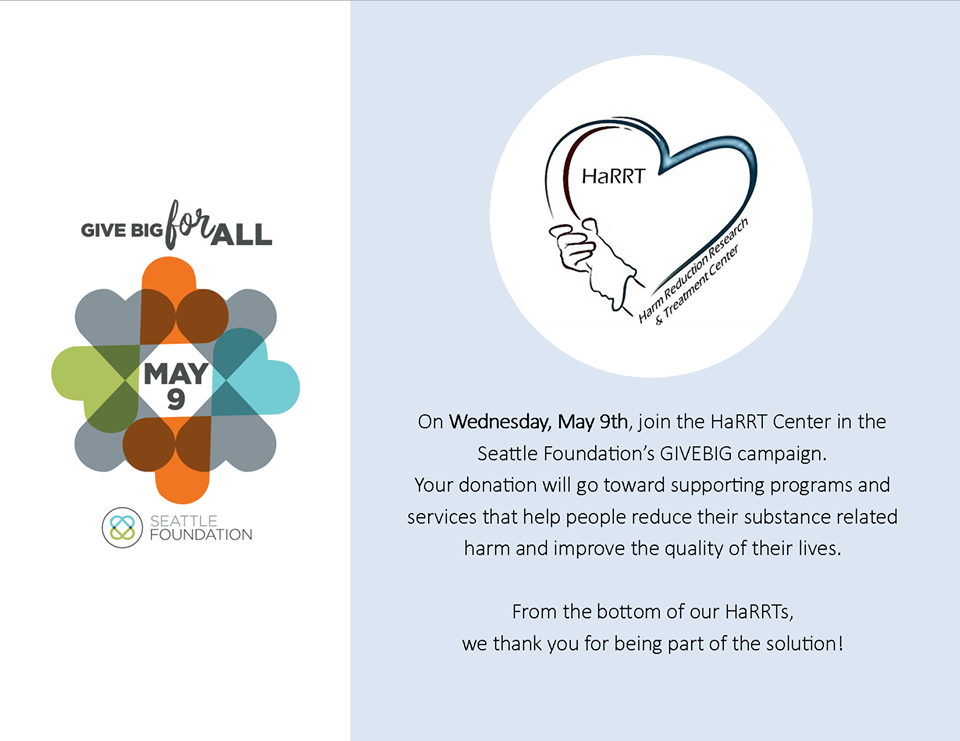
At the HaRRT Center, our vision is to reduce substance related harm, engage and strengthen communities, and improve lives. We believe in the dignity and self-worth of all individuals and people’s right to self-determination. We know there are many great causes out there and would be honored if you would consider supporting the HaRRT Center this year!
You can schedule your donation now through midnight on Wed, May 9th!
https://
Please make sure you indicate in the comments section on the donate page that you would like your donation to be applied to the Harm Reduction Research & Treatment Center. If you do not indicate this designation, your contribution will go to the general UW fund.
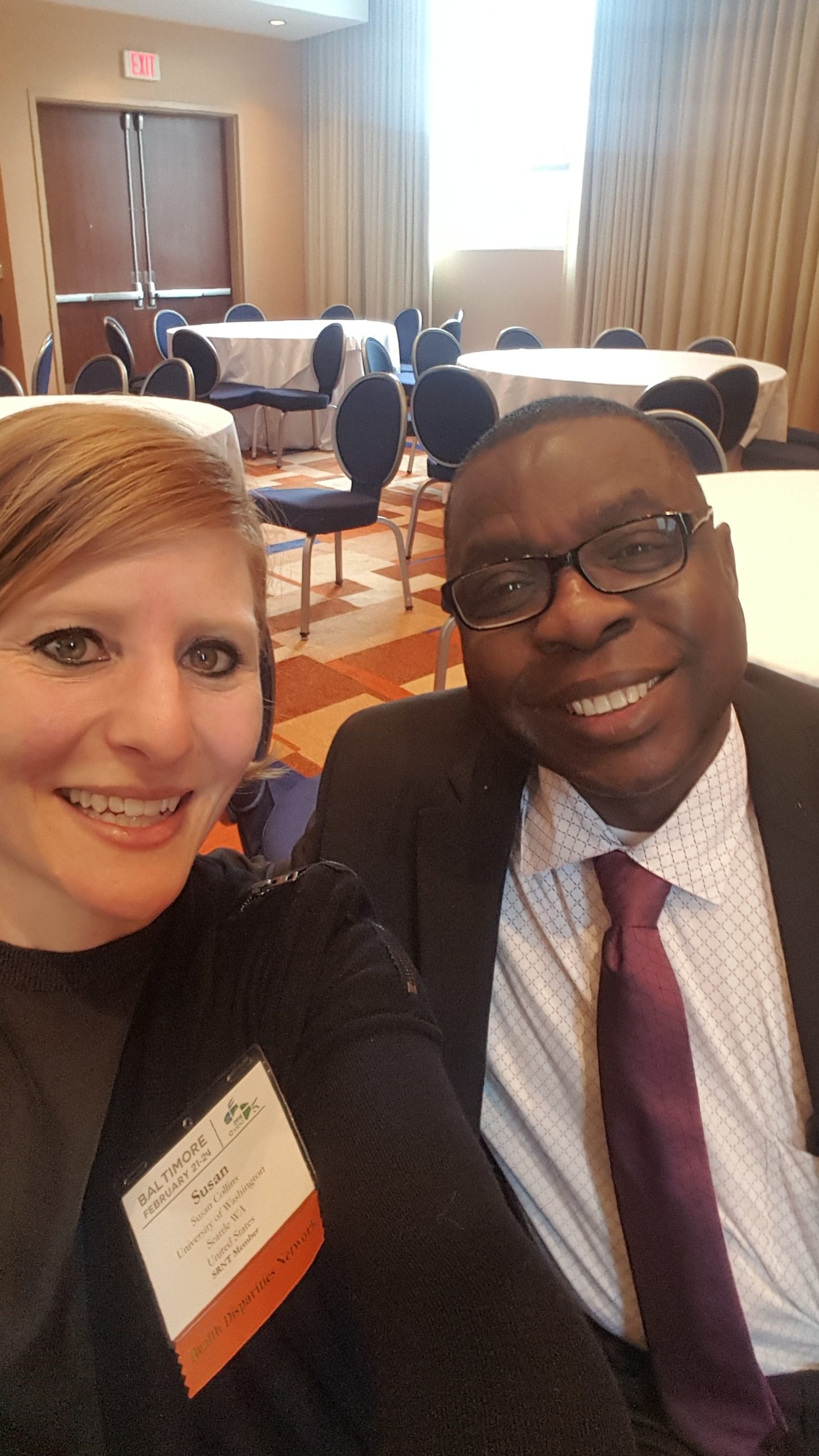
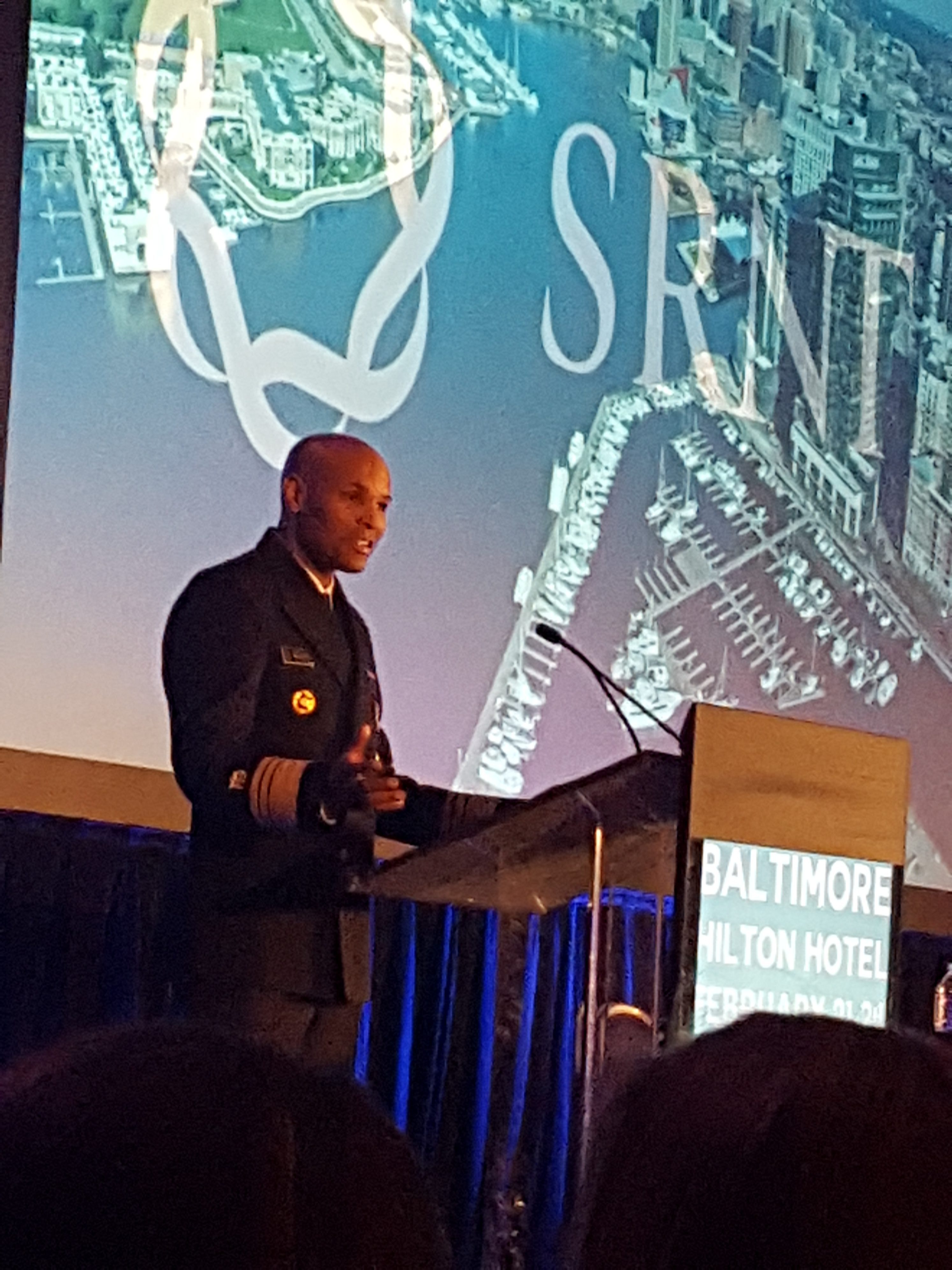
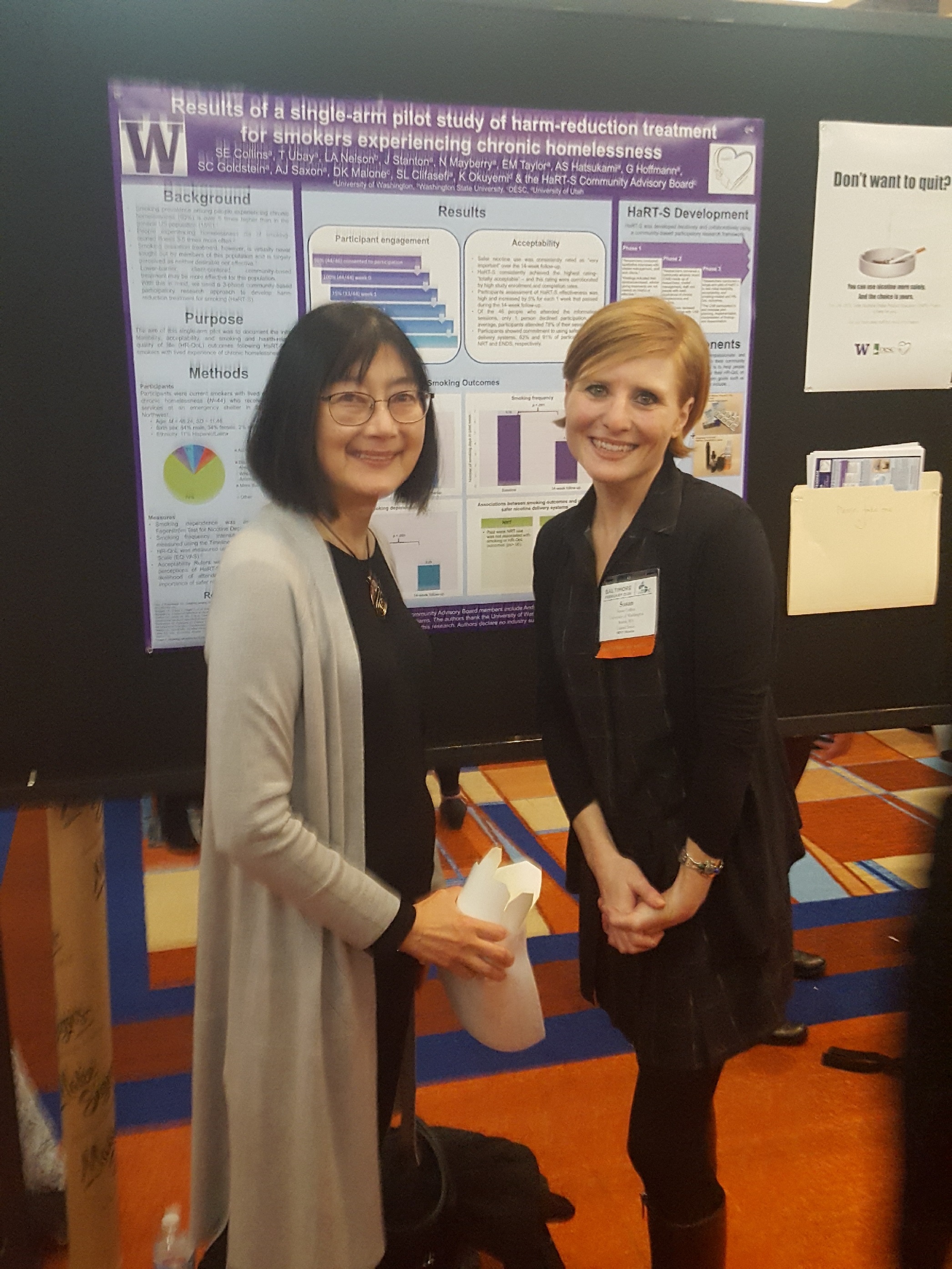
Department Collaborating with Native Communities to Address Alcohol Use Disorder
The National Institute on Alcohol Abuse and Alcoholism (NIAAA) has funded the Native Center for Alcohol Research and Education (NCARE) devoted to working with Native communities across the United States to co-create and evaluate interventions that address alcohol problems. This Center will be led by Dedra Buchwald, MD, ounding Director of Washington State University’s Partnerships for Native Health (P4NH), and will have contributions from department faculty, Seema Clifasefi, PhD, Susan Collins, PhD, Dennis Donovan, PhD, and Rick Ries, MD.
Three primary projects will be contained within the Center, including one co-led by Dr. Collins and her husband, Dr. Lonnie Nelson, who is a clinical psychologist, Native health researcher and codirector of WSU’s P4NH. They will be working with providers at the Seattle Indian Health Board to adapt and evaluate the integration of the HaRRT Center’s harm-reduction approach to alcohol use disorder (AUD) and the Native tradition of the talking circle. A talking circle is a gathering of people with a common concern who respectfully share their perspectives and “listen with their heart” while each individual speaks. Traditionally, talking circles have been used to address community problems, help in healing, and bring about community harmony.
Using a community based participatory research approach, an advisory board that is made up of researchers, traditional Native healers, providers at SIHB, and urban American Indians and Alaska Natives with lived experience of AUD will help shape and implement the study. Participants will be patients with AUD who receive primary care and behavioral health services at the Seattle Indian Health Board.
Drs. Collins and Nelson also recently provided a training on harm-reduction treatment (HaRT) for substance use disorders at the 7th Annual Northwest Tribal Opioid Symposium hosted by the Muckleshoot Tribe in November. Most Washington and some Idaho, Montana, Oregon and Alaska Tribes come to this annual event which Dr. Ries helped develop and annually facilitates together with the Muckleshoot Tribe.
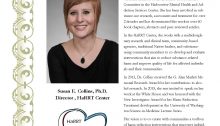
A training for clinicians on harm reduction treatment is going to be offered Wednesday, December 13th, from 9:00am – 5:00pm at Harborview Medical Center. Please see the flyer below for more information.
If you are interested in participating please email us at harrtlab@uw.edu.
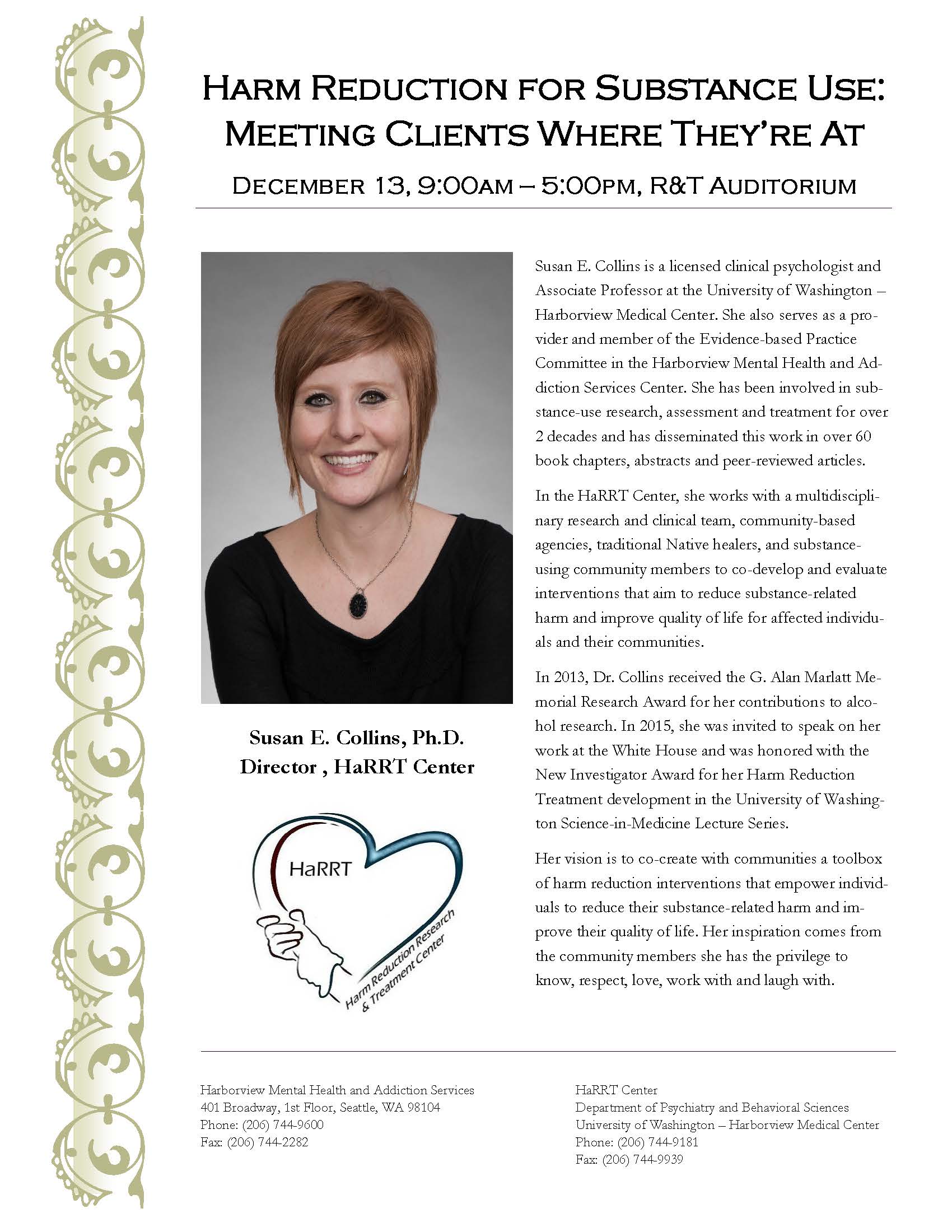
Thank you very much to Crosscut for putting together this wonderful article about the 1811 Artist Collective!
http://crosscut.com/…/once-homeless-now-theyre-creating-art/
There’s still two weeks left to go check out the Telling our Stories exhibit at the UW School of Social Work. Original artwork will be on display until December 15th, but prints will always be available through us for $22. You can see all of the available prints on our Facebook page and order by contacting us at harrtlab@uw.edu or 855-320-1004.
Our article from Phase I of the Harm Reduction Treatment for Smoking (HaRT-S) study that we co-wrote with our UW undergraduate class has been published in the International Journal of Drug Policy! If you click on this link you can access the article free for the next two months.
If you are a UW student and want to learn more about our PSYCH/PBSCI 499 research course click here.
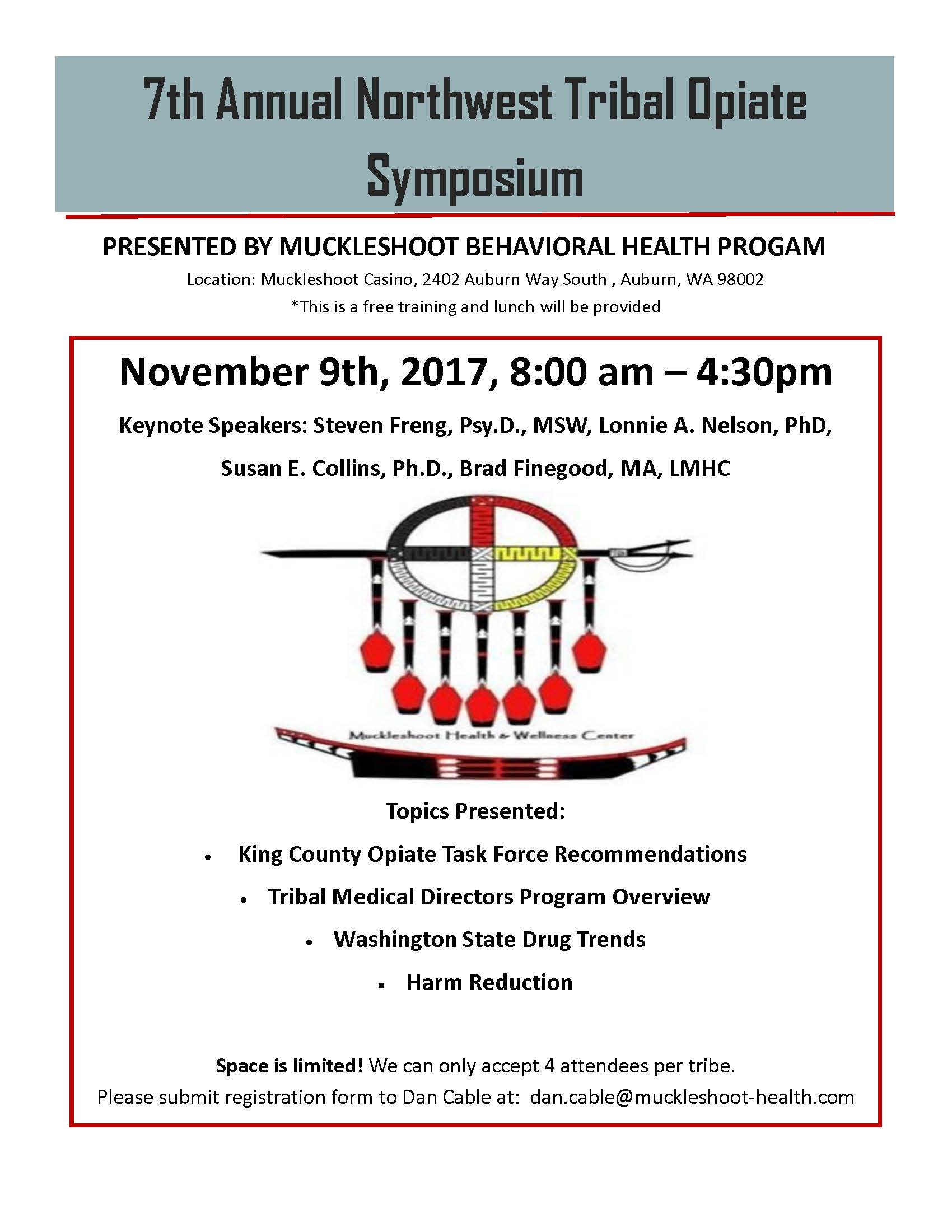 Susan Collins and Lonnie Nelson co-presented harm reduction training for clinicians at the 7th Annual Northwest Tribal Opiate Symposium on November 9th, 2017. The training went really well with a crowded room of attendees!
Susan Collins and Lonnie Nelson co-presented harm reduction training for clinicians at the 7th Annual Northwest Tribal Opiate Symposium on November 9th, 2017. The training went really well with a crowded room of attendees!